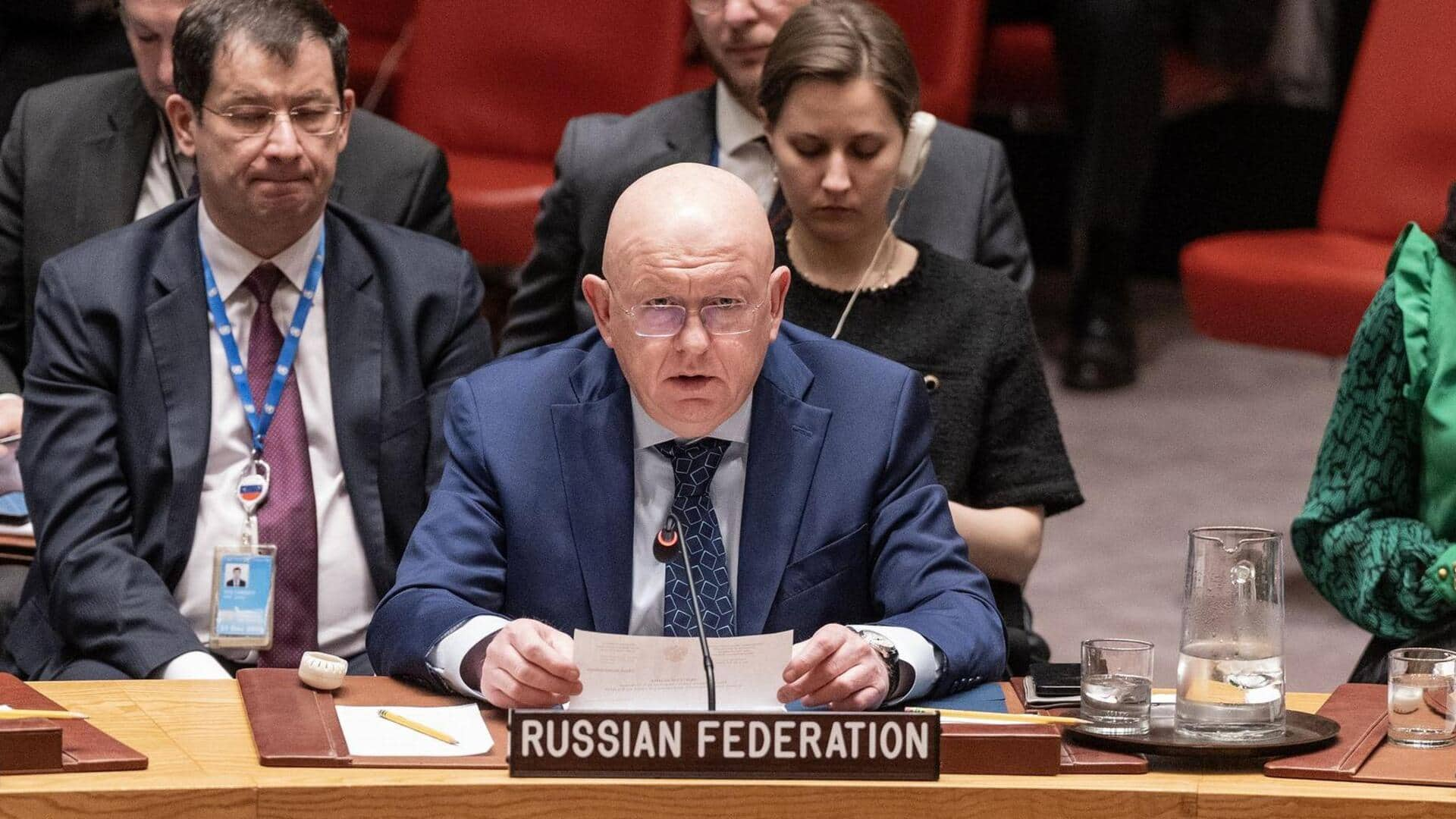
Russia blocks UN resolution on preventing arms race in space
What's the story
In a recent development, Russia has exercised its veto power to block a United Nations initiative aimed at preventing the escalation of a potential nuclear arms race in space.
The proposal, co-sponsored by the United States and Japan, was put to vote in the 15-member Security Council.
Despite receiving 13 votes in favor, Russia's opposition and China's abstention led to its failure.
Political motivation
Russia dismissed the initiative as politically motivated
Russia dismissed the initiative as politically motivated, arguing that it did not comprehensively ban all forms of weaponry in space.
The primary objective of the initiative was to urge nations to refrain from developing or deploying nuclear weapons or other weapons of mass destruction in space.
This objective aligns with a 1967 international treaty signed by both the US and Russia.
Veto questioned
US Ambassador questions Russia's veto
US Ambassador Linda Thomas-Greenfield expressed confusion over Russia's veto, pointing out that Russian President Vladimir Putin has previously stated that Moscow has no plans to deploy nuclear weapons in space.
She questioned, "Today's veto begs the question: Why? Why, if you are following the rules, would you not support a resolution that reaffirms them? What could you possibly be hiding?"
"It's baffling. And it's a shame."
Troubling developments
Earlier this year, White House confirmed Russia's anti-satellite weapon capability
Earlier this year, the White House confirmed that Russia had acquired an anti-satellite weapon capability, a development deemed "troubling".
However, this weapon is not yet operational.
Putin later clarified that Moscow's space capabilities were only on par with those of the United States, attempting to alleviate concerns over potential escalation.
Resolution criticized
Russia's UN ambassador calls resolution 'absurd and politicized'
Prior to the vote, Russia's UN Ambassador Vassily Nebenzia labeled the resolution as "absurd and politicized".
He suggested an amendment to the US-Japan draft stating an arms race in outer space should encompass all types of weapons, not just nuclear weapons and other weapons of mass destruction.
However, this amendment failed to pass due to a lack of sufficient votes.